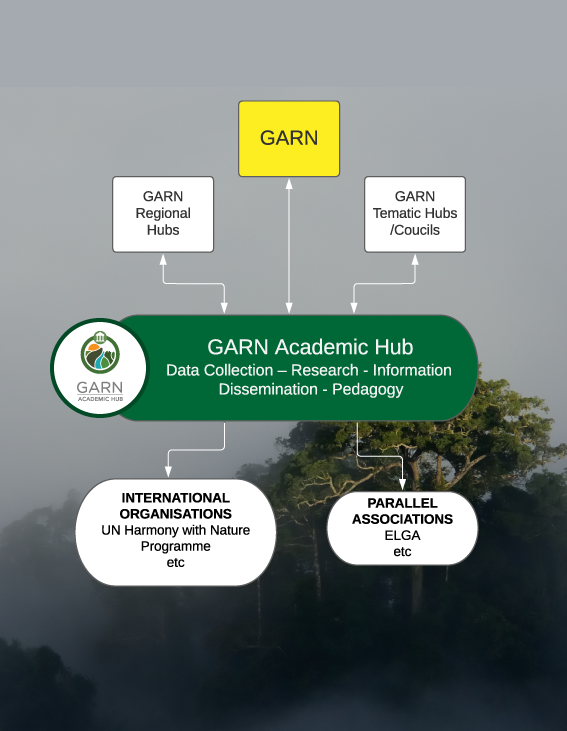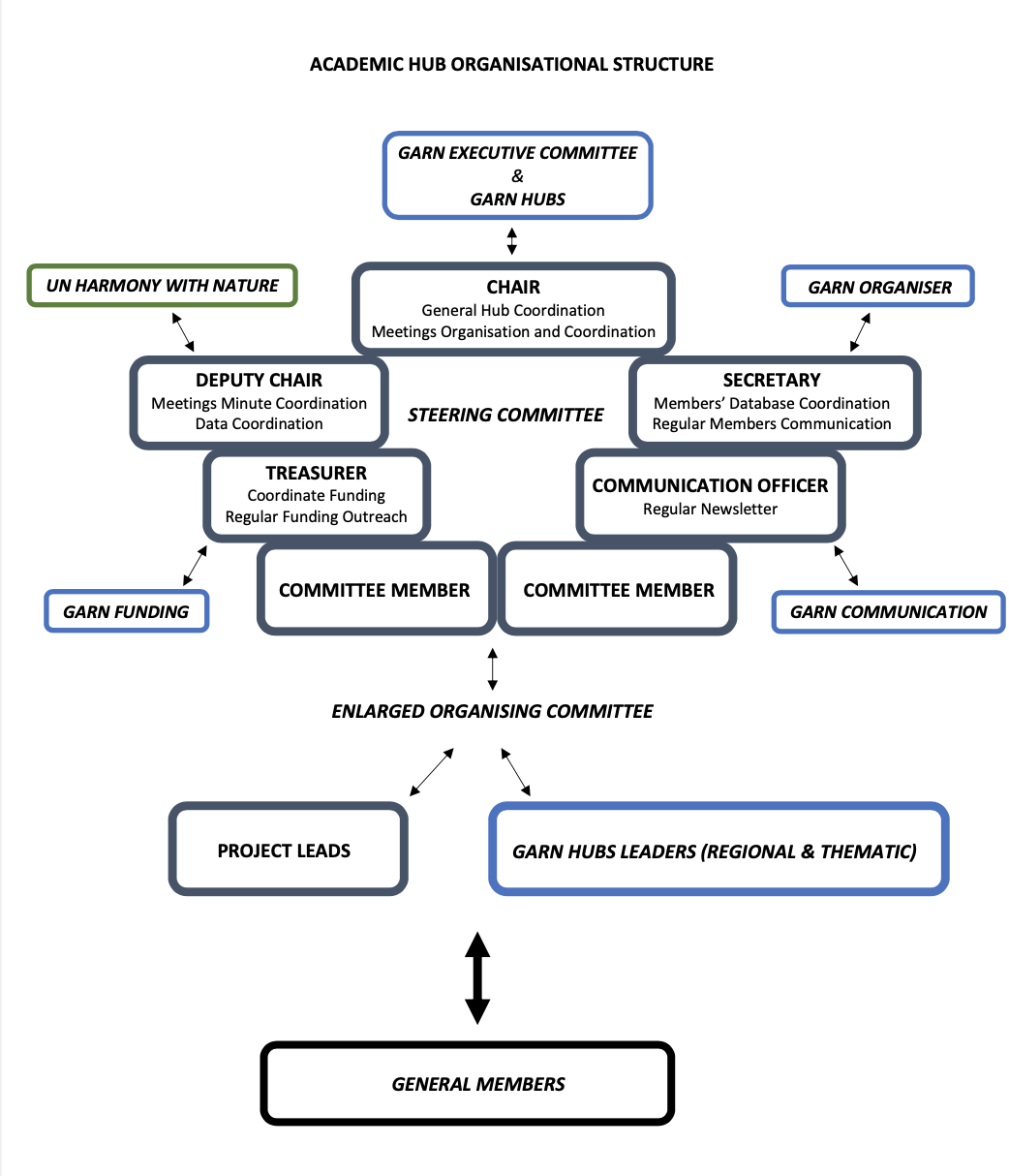GARN Academic Hub
The Academic Hub of the Global Alliance for the Rights of Nature was established in 2020 in order to harness the extensive and multidisciplinary scholarship that has developed around GARN’s core commitment to the emergence of an ecological jurisprudence.
The Academic Hub of the Global Alliance for the Rights of Nature is open to all scholars working in the fields described above. Its aim is to establish an international multidisciplinary network of researchers and thinkers exchanging ideas and collaborating on research projects.
While it is undeniable that law, regulation and policy represent GARN’s major focus, the academic hub is proposed as intellectually independent and multidisciplinary in scope, hopefully transcending the boundaries of the purely ‘legal’. Rather, its aim is to extend to all disciplines, scholars and research projects connected to the emergence of an ecological jurisprudence. The main goal of the academic hub is to leverage educational and research pathways to increase knowledge sharing, as well as establishing a space for critical inquiry that facilitates and fosters novel research into the field. To do so, the hub establishes a network of both individual researchers and research institutions, as well as a host of non-academic organizations whose scholarly work nonetheless intersects with that of those researchers and research institutions.
The Academic Hub in context

Ecological jurisprudence
With the onset of climate change and potential mass extinction, and the closing window of opportunity to take meaningful action, a growing number of communities, organizations, and governments around the world are calling for anthropocentric legal and governance systems to be replaced with non-anthropocentric ones. The last 15 years have seen a dramatic increase in the number of laws based on ecological jurisprudence, a legal philosophy that connects ecological awareness and legal principles. One of its most prominent implication is to see nature not as a set of objects to be exploited, but as a community of subjects (including humans and non-humans) who are connected through interdependent, reciprocal relationships, recognizing that human well-being is dependent on the well-being of ecosystems that provide the conditions for life, ecological jurisprudence places the well-being of all members of the biotic community (including humans) ahead of human self-interest alone. Different cultures are adopting different legal expressions of ecological jurisprudence. While in Western legal systems it is often expressed as rights of nature, with laws recognizing ecosystems as subjects with rights, and ecocide, many non-Western legal cultures instead often emphasize human responsibilities.
The Academic Hub organisational structure

